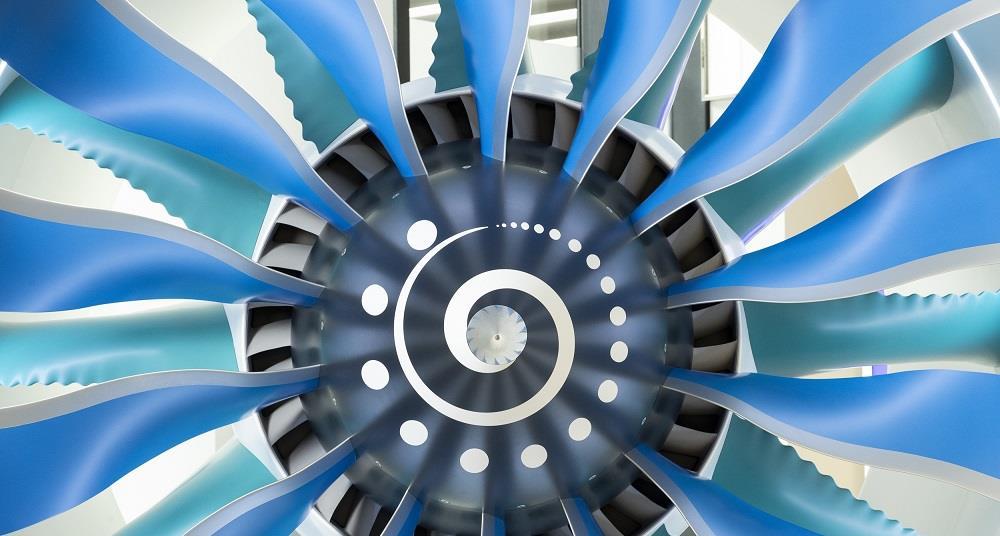Norra tightens ATR door procedures after similar passenger-fall accidents
Company
Legal Links
Contact
- +44 7947 753363
- contact@skylineairporttransfers.co.uk
- 6 Walsall Street Bilston Wolverhampton WV14 0AT
Recent Posts
© Skyline Airport Transfers. Created by![]() Beaphoenix WebDesign ltd
Beaphoenix WebDesign ltd
Popular Locations:
Birmingham: Aston, Bournville, Edgbaston, Erdington, Great Barr, Hall Green, Handsworth, Harborne, Northfield, Quinton, Soho, Sutton Coldfield, Amblecote, Brierley Hill, Coseley, Cradley, Gornal, Halesowen, Kingswinford, Lye, Netherton, Sedgley, Stourbridge, Quarry Bank, Bearwood, Blackheath, Cradley Heath, Great Bridge, Old Hill, Rowley Regis, Smethwick, Tipton, Tividale, Wednesbury, West Bromwich, Balsall Common, Bickenhill, Castle Bromwich, Chelmsley Wood, Dorridge, Elmdon, Hampton in Arden, Kingshurst, Knowle, Marston Green, Meriden, Monkspath, Hockley Heath, Shirley, Aldridge, Birchills, Bloxwich, Brownhills, Darlaston, Leamore, Palfrey, Pelsall, Pheasey, Shelfield, Streetly, Willenhall, Bilston, Blakenhall, Bushbury, Compton, Ettingshall, Heath Town, Oxley, Penn, Tettenhall, Wednesfield, Burntwood, Lichfield, Cannock, Rugeley, KIDDERMINSTER, Brierly Hill,
STOURPORT-ON-SEVERN
Coventry: Allesley, Binley, Keresley, Stoke, Tile Hill
Leicester: Abbey Rise, Ashton Green, Aylestone, Beaumont Leys, Bede Island, Belgrave, Blackfriars, Braunstone, Braunstone Frith, Bradgate Heights, Clarendon Park, Crown Hills, Dane Hills, Evington, Evington Valley, Eyres Monsell, Frog Island, Goodwood, Hamilton, Highfields, Horston Hill, Humberstone, Humberstone Garden, Kirby Frith, Knighton, Mowmacre Hill, Netherhall, Newfoundpool, New Parks, North Evington, Northfields, Rowlatts Hill, Rowley Fields, Rushey Mead, Saffron, Southfields, South Knighton, Spinney Hills, Stocking Farm, Stoneygate, St. Matthew’s, St. Mark’s, St. Peters, Thurnby Lodge, West End, West Knighton, Western Park, Woodgate
Derby: Matlock, Ripley, Ashbourne, ILKESTON, SWADLINCOTE , BURTON-ON-TRENT, BAKEWELL,
ALFRETON, BELPER, HEANOR
Telford: Market Drayton, Newport, Shifnal, Broseley, Much Wenlock
Stoke: Stoke-on-Trent, Newcastle, Leek, Uttoxeter, Stone, Stafford
Worcester: Worcester, Droitwich, Pershore, Broadway, Evesham, Malvern, Tenbury Wells
Gloucester: Gloucester, Cheltenham, Stroud, Cirencester, Tewkesbury, Badminton, Berkeley, Blakeney, Chipping Campden, Cinderford, Coleford, Drybrook, Dursley, Dymock, Fairford, Lechlade, Longhope, LydbrookLydney, Mitcheldean, Moreton-in-Marsh, Newent, Newnham, Ruardean, Stonehouse, Tetbury, Westbury-on-Severn, Wotton-under-Edge.
Nottingham: Nottingham, Sutton-in-Ashfield, Mansfield, Newark, Southwell, Grantham, Sleaford
Leicester: Leicester, Hinckley, Loughborough, Melton Mowbray, Oakham Market, Harborough, Lutterworth, Wigston, Ashby-de-la-Zouch, Ibstock, Markfield
Oxford: Oxford, Kidlington, Chipping Norton, Thame, Wallingford, Didcot, Wantage, Abingdon, Banbury, Carterton, Woodstock, Bicester, Witney, Chinnor, Watlington
Chester: Chester, Deeside, Bagillt, Buckley, Holywell, Birkenhead, Preston, Wallasey, Wirral, Neston, Ellesmere Port, Prenton
Airports we serve:
BHX: Birmingham Airport
EMA: East Midlands Airport
LHR: London Heathrow Airport
MAN: Manchester Airport
LGW: London Gatwick Airport
LTN: London Luton Airport
SOU: Southampton Airport
BRS: Bristol Airport
LPL: Liverpool John Lennon Airport
LCY: London City Airport
STN: London Stansted Airport



Full implementation of safety changes following a passenger’s fall from an Norra ATR 72-500 in January last year had not been completed before a similar accident with the same aircraft type the following November.
In both occurrences – the earlier at Jyvaskula, the later at Helsinki – a passenger was hospitalised. The passenger in the Helsinki event sustained serious head injuries. Norra, which operates regional services for Finnair, has since reinforced its procedures.
In its inquiry into the Helsinki accident on 12 November 2024, the Finnish safety investigation authority says a passenger was disembarking the aircraft when a collapsible handrail folded down unexpectedly. It has traced the cause to incorrect placement of a quick-release locking pin which secures the handrail in an upright position.
“The unlocked handrail remained upright after the door was opened, giving an impression of the pin being in its correct position,” says the inquiry.
Norra’s door-operating instructions did not require a second cabin crew member to verify the position of the pin, it adds, and no other barriers were in place to guard against human lapses.
The safety authority says the previous accident, at Jyvaskula about 10 months earlier, took place in similar circumstances.
Although the Jyvaskula event was not subject to a full safety investigation, a preliminary analysis found the handrail mechanism of the aircraft involved deployed “almost normally” despite the quick-release pin’s not being inserted.
“Putting weight on the handrail caused it to collapse,” it stated, adding that the position of a warning flag, which is attached to the pin, appears “nearly identical” in all configurations – making it unreliable as an indicator.
Such mishaps with pin installation were “not exactly uncommon”, it added, but largely went unreported.
The preliminary analysis recommended a number of measures to ATR and aircraft operators for maintenance and procedures regarding the handrail.
Finland’s safety authority states that Norra had revised the door procedure in the aftermath, and the aircraft manufacturer had also worked on safety improvements. “But not all of them had been fielded by the time of the [Helsinki] accident,” it adds.
Norra subsequently issued a safety alert bulletin to cabin crew regarding door operation, and established an amended door-opening procedure two days later. This procedure requires call-outs to ensure the handrail is locked in place. The carrier also mandated weekly inspection of the handrail.
Source link
Share This:
skylinesmecher
Plan the perfect NYC Memorial Day weekend
Pack only what you need and avoid overpacking to streamline the check-in and security screening…
LA’s worst traffic areas and how to avoid them
Consider using alternative routes, such as Sepulveda Boulevard, which runs parallel to the 405 in…
Middle East flight cancellations surge as Israel-Iran conflict closes airspace
Flight cancellations to and from the Middle East continue to climb, as airspace and airport…
Rolls-Royce teases UltraFan 30 features as demonstrator heads for design freeze
Rolls-Royce has shown off a full-scale mock-up of its proposed UltraFan 30 engine aimed at…
Rolls-Royce remains unconvinced that open-rotor benefit outweighs integration risk
Rolls-Royce has emphasised its scepticism over the open-rotor concept, as it unveils its ducted UltraFan…
NATO next-generation rotorcraft project closes on final requirements as Boeing re-emerges as possible bidder
A project involving six NATO members aiming to develop a next-generation military helicopter has agreed…
UK Royal Air Force advances crew training capability as delayed Boeing E-7A Wedgetail nears service entry
The UK Royal Air Force (RAF) has edged closer to reinstating its lapsed airborne early…
Croatia Airlines pressured by weak revenue growth and continuing fleet-renewal costs
Croatia Airlines’ full-year losses have doubled, a situation which the carrier attributes to weak revenue…
London City consults on shallower glideslope to enable A320neo operations
London City airport is seeking to implement a shallower glideslope of 4.49° – compared with…
GTF shop visits continue to drive commercial maintenance revenues at MTU
MTU Aero Engines is expecting continuing strong demand for powerplant maintenance, with the persisting Pratt…
Draken boosts UK ‘Red Air’ service delivery with L-159E after completing first depot-level inspection
Adversary training specialist Draken has completed a first depot-level inspection on one of the Aero…
Rolls-Royce lifts Trent engine durability-improvement target
Rolls-Royce has hiked the durability improvement target for its Trent engine time-on-wing programme, raising the…